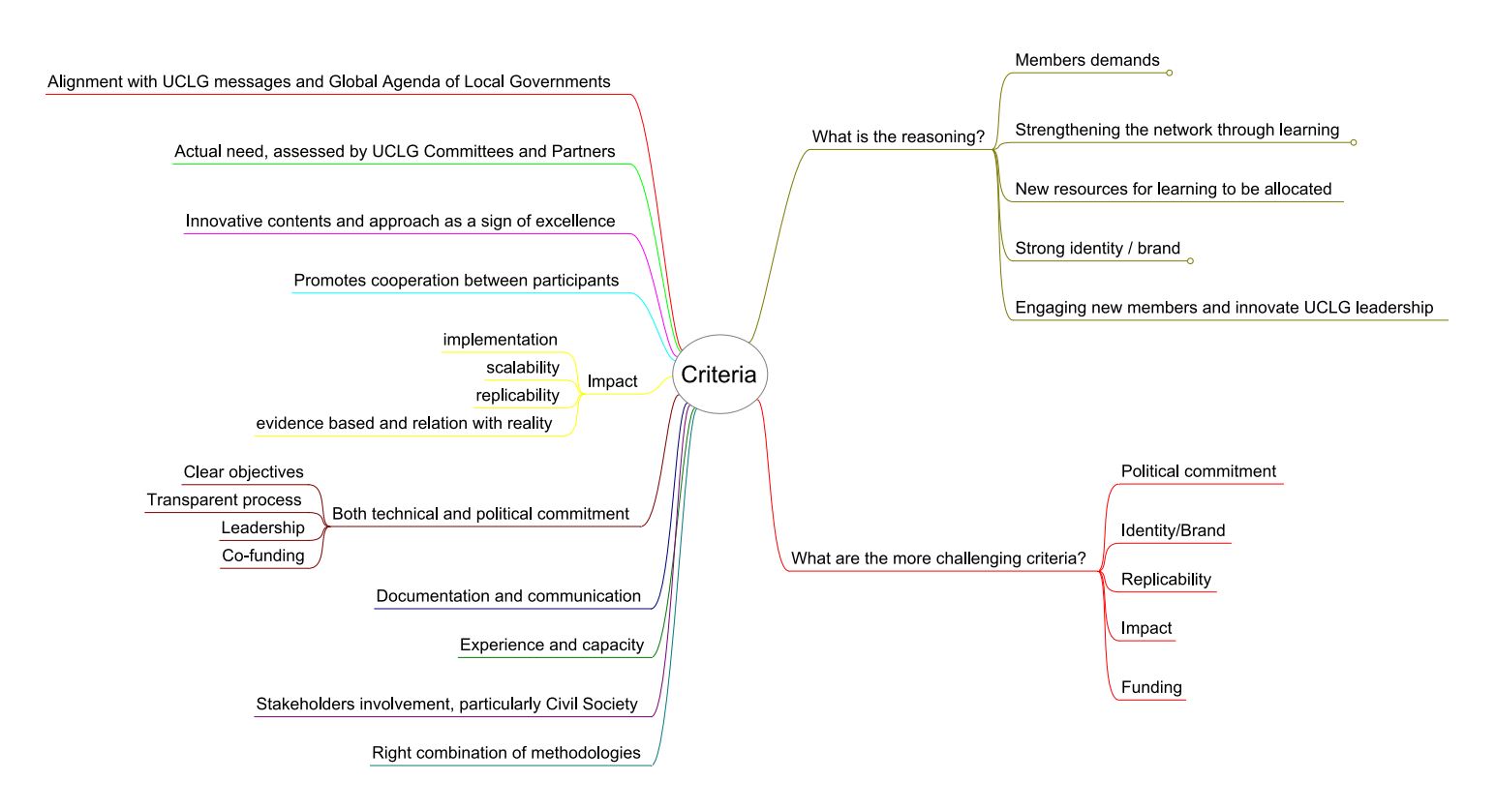Co-creating a new learning agenda for UCLG
01.10.2015
One of UCLG’s main reasons for being is its coordination of international city-to-city learning exchanges between local and regional governments. Projects such as Platforma, the municipal e-library and Project ALLAS Mexico give our members the opportunity to learn from the successes of their peers across the world.
One of UCLG’s main reasons for being is its coordination of international city-to-city learning exchanges between local and regional governments. Projects such as Platforma, the municipal e-library and Project ALLAS Mexico give our members the opportunity to learn from the successes of their peers across the world.
At the UCLG Retreat and Campus in February, representatives of Committees, Regional Sections and key partners agreed that the organization should develop a learning agenda that provides a strategic vision and framework for its learning activities.
With this in mind, the UCLG World Secretariat invited a group of active members and partners to meet from 29 and 30 of September for two days of work to start working collaboratively on creating a new learning agenda for cities and local governments.
The goals of the meeting were:
- To discuss the criteria that UCLG should adopt in order to identify and implement learning activities of strategic value for its members.
- To exchange ideas of concrete activities, in light of the criteria discussed, for the UCLG Learning Agenda in 2016.
- To envision an open process for co-creating the UCLG Learning Agenda with members and partners.

The workshop was attended by representatives of membership organizations actively involved in capacity building and knowledge exchange, at national, regional and international level, including Metropolis, the International Cooperation Agency of the Association of Netherlands Municipalities (VNG), the Federation of Municipalities of Catalonia (FMC), the South African Local Government Association (SALGA), the National Confederation of Municipalities of Brazil (CNM), the National Association of Mayors of Brazil (FNP), Project ALLAS Mexico, the Municipal Institute of Learning of Durban (MILE), UCLG Asia Pacific, the Province of Barcelona, and the UCLG Committees on Culture, Urban Strategic Planning (USP), and Social Inclusion, Participatory Democracy and Human Rights (CISDP).
On the first day, participants shared their learning activities, indicators and plans for the future. The activities varied widely, from traditional formal courses, through work shadowing and on-the-job training, to online methodologies and were directed at both elected local leaders and local public administrators. There was also a range of experience in the room, from VNG, with its decades of experience in North-South learning activities, to the UCLG Committee on Culture, whose pilot city learning programme is only just getting underway. What all the projects had in common was a desire to design their work programme in response to demand, and to meet the changing needs of the cities and local governments with whom they worked. The criteria for participation and management of the UCLG learning agenda were also discussed.
Questions explored on day two included the roles for UCLG, its Regional Sections, cities and regions, academia, and funders in the learning agenda, and how each partner could link its learning projects to its broader work in policy development and implementation. The question of whether, and how, to link the learning agenda to the Sustainable Development Goals (SDGs) and the new Urban Agenda was also discussed. Finally, participants also discussed the tools and mechanisms needed to develop, implement and follow-up on the new agenda. It was clear that there is an increasing commitment of Southern members to share their experiences and engage in international learning and cooperation.
These sessions were organized back-to-back with the annual meeting of UCLG’s Capacity and Institution Building Working Group (CIB) in Den Hague on 1-2 October and the outputs and conclusions will be fed into the CIB meeting and a document on ‘Defining and building on decentralized and south-south city-to-city cooperation’.

